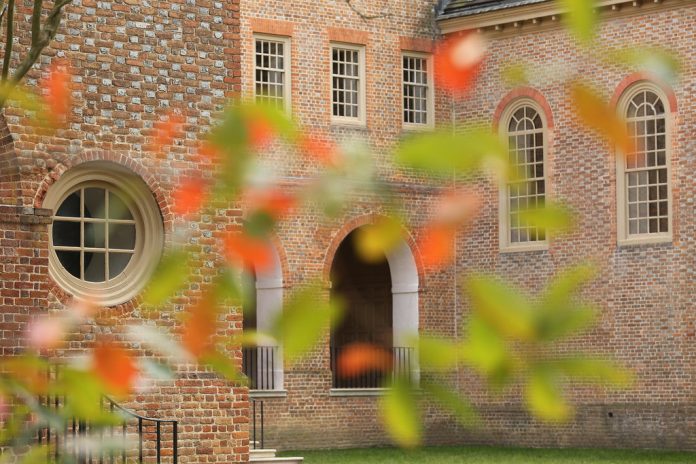We’ve all heard of it, we’ve all seen it, but have we all experienced it? The freshman plague, as it has been less-than-endearingly coined by students of the College of William and Mary, is the infamous, microscopic entity that threatens student life as we know it.
As a freshman from New Jersey, I know cold and flu season like the best friend I never wanted. Yes, she’s icky. Yes, she’s expensive — thanks Nyquil. She’s up-close and personal. Yes, she hit hard the individual who sits next to me in class.
No one likes her, she likes no one and she shows little mercy — the freshman plague, that is, not my classmate.
I, however, for consecutive years, have not fallen victim to the seasonal devil. I am a proud owner and keeper of a strong immune system, and since arriving on campus I have been doing the utmost to avoid the freshman plague like my name is Vince Vaughn.
How is this feasible, you may ask? How can I avoid the unavoidable? After all, even upperclassmen have fallen victim to the plague they know so well.
Luckily enough, I have some intricate tips for students at the College looking to preserve their health and retain some energy this season, so that they too might drown in reading or problem sets at Earl Gregg Swem Library rather than tissues and DayQuil prescriptions at the Student Health Center.
My first tip — and, don’t scream — is to sleep. I am a huge believer in getting enough sleep, and while science says eight hours a night should be our minimum, I say 10 hours, because I do not believe in doing the bare minimum in order to physically and emotionally handle going through the numbing daily routine of a college student.
Naps are your enemy. I will not budge on that. Please sleep at night, for we are humans, not bats.
And consider an additional, financial incentive: a venti cold brew is going to do nothing for you if you don’t give her a solid base to work with, and Starbucks wants to help you. She really does.
Second tip — eat a vegetable or two. Taking care of your body is quite literally what avoiding the plague is all about. To keep things interesting, I like to recommend throwing some sriracha on a vegetable, or maybe some ranch for any faint-of-heart-from-spice folk. Extra points if your chosen vegetable is green!
Third — between Swemaromas coffees, lattes and smoothies, find time to locate your nearest water fountain! For those who may be unfamiliar, “water fountains” are machines that produce drinking water, and they love dehydrated college students. The College has several of these contraptions set up throughout campus, and despite the intimidating nature of these fountains, they are approachable and most of them work.
I do care to include several disclaimers: the incredibly weird and unpredictable temperatures of the swamp can be a sneaky ally to the plague when accompanied by soaring stress levels, especially with midterm season in full swing, and additional pressure to balance work, social and personal priorities.
The moral of this story is to take time before you get sick to help yourself and others. No one likes to be shut up in a dorm for several days at a time — especially me, thanks to living in the Botetourt Complex — or miss class.
Email Carina Pacheco at capacheco@email.wm.edu.




































